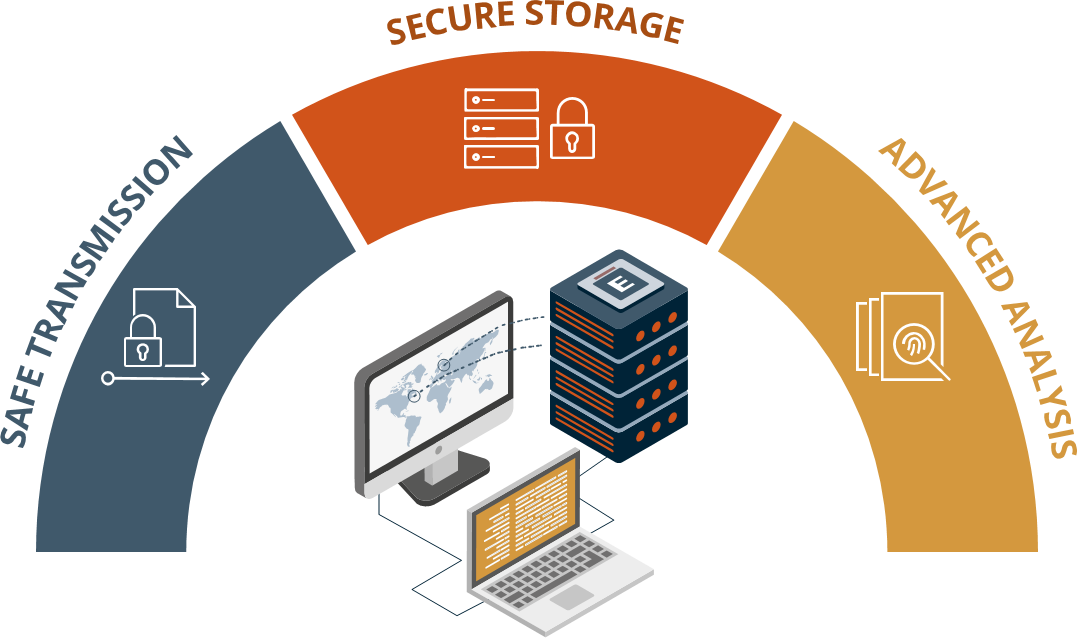 CICED stands for Core International Crimes Evidence Database. It is a unique, tailor-made judicial database set up by Eurojust to preserve, analyse and store evidence of core international crimes (genocide, crimes against humanity and war crimes). CICED enables the Agency to support national judicial authorities in identifying evidence located in another country that may be relevant to their own investigation. This evidence can be used to corroborate individual offences and events or to unveil systematic actions and provide contextual information.
CICED stands for Core International Crimes Evidence Database. It is a unique, tailor-made judicial database set up by Eurojust to preserve, analyse and store evidence of core international crimes (genocide, crimes against humanity and war crimes). CICED enables the Agency to support national judicial authorities in identifying evidence located in another country that may be relevant to their own investigation. This evidence can be used to corroborate individual offences and events or to unveil systematic actions and provide contextual information.
How it works
Competent national authorities from EU Member States and countries with Liaison Prosecutors at Eurojust can submit evidence to CICED via secure file transfer. Evidence submission is voluntary and the submitting authority remains in control of how the evidence or information about the evidence is shared.
Possible types of evidence include, but are not limited to, videos, photographs, audio recordings, satellite images, witness statements, victim testimonies, and medical and forensic documents.
Information collected by private parties such as non-governmental organisations and civil society organisations may eventually become evidence, but it needs to be assessed by national and international judicial authorities. Private parties are therefore asked to submit relevant information to their national authorities.
Based on CICED, Eurojust can
- maintain a complete overview of all evidence collected;
- strengthen the coordination of national and international investigations;
- perform targeted searches for evidence related to a specific event or location;
- identify evidentiary gaps;
- identify parallel investigations;
- advise on prosecution strategies;
- facilitate evidence and information exchange on core international crimes; and
- prepare thematic reports on specific aspects of core international crime investigations (e.g. on sexual and gender-based violence).
Advantages
CICED comes with a number of important benefits. The fact that it stores evidence on core international crimes from national judicial proceedings in a single, secure, central database allows for advanced analysis, leading to, for example, the early identification of parallel investigations, which results in a more efficient use of resources. Providing an overview of interviewed victims helps avoid re-victimisation by repeated interviews. In addition, targeted evidence searches mean faster and more effective national investigations. Based on structured evidence, national and international authorities can successfully proceed with prosecutions.
Scope of the challenge
Genocide, crimes against humanity and war crimes, known collectively as core international crimes, present unique challenges in investigations and prosecutions. Prosecutors need to prove not just the material and mental elements of the crimes, but also their contextual elements, such as:
- a connection with an armed conflict (war crimes),
- widespread or systematic attacks against a civilian population (crimes against humanity), or
- the intent to destroy, in whole or in part, a national, ethnical, racial or religious group (genocide).
Investigations face a fragmented and complex landscape. Thousands of events, countless pieces of evidence and multiple jurisdictions are involved. Evidence of core international crimes is located in many different countries and comes in various languages. Refugees who can provide victim or witness statements are scattered around the world. There are also different stakeholders involved in gathering and storing evidence: national police and judicial authorities, the International Criminal Court and non-governmental organisations. As a result of CICED, Eurojust is now able to make crucial links between the evidence and ensure that the efforts of different authorities are not duplicated.
Legal basis
While CICED is not limited to a particular conflict, and can serve as evidence storage for any armed conflict investigated by Eurojust's partners, it was the ongoing war in Ukraine that demonstrated the need for a centralised judicial database for evidence of core international crimes. Shortly after the beginning of the Russian invasion, the institutions of the European Union extended the Agency's mandate. On 1 June 2022, Regulation 2022/838 entered into force, allowing Eurojust to preserve, analyse and store evidence of core international crimes, paving the way for CICED. The evidence database has been set up within Eurojust's secure IT environment and complies with the highest IT security and data protection standards.
More information
Additional information on CICED can be found in this leaflet.


 CICED stands for Core International Crimes Evidence Database. It is a unique, tailor-made judicial database set up by Eurojust to preserve, analyse and store evidence of core international crimes (genocide, crimes against humanity and war crimes). CICED enables the Agency to support national judicial authorities in identifying evidence located in another country that may be relevant to their own investigation. This evidence can be used to corroborate individual offences and events or to unveil systematic actions and provide contextual information.
CICED stands for Core International Crimes Evidence Database. It is a unique, tailor-made judicial database set up by Eurojust to preserve, analyse and store evidence of core international crimes (genocide, crimes against humanity and war crimes). CICED enables the Agency to support national judicial authorities in identifying evidence located in another country that may be relevant to their own investigation. This evidence can be used to corroborate individual offences and events or to unveil systematic actions and provide contextual information.